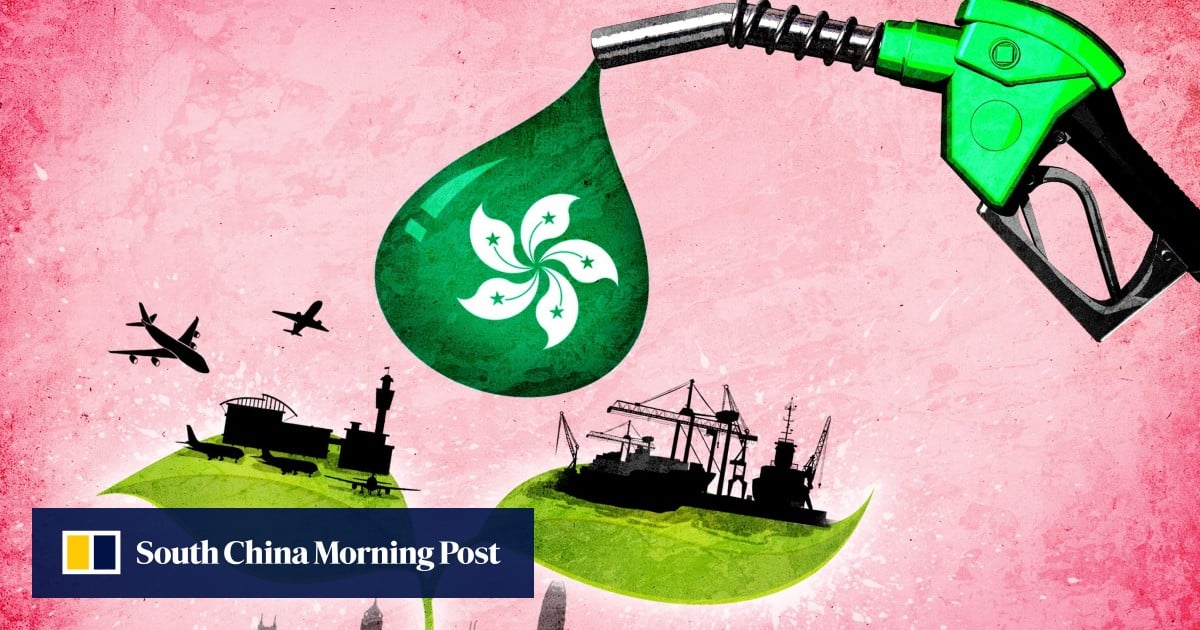

Hong Kong's ambition to establish itself as a leading hub for sustainable aviation fuel (SAF) and green marine fuel faces significant challenges as it currently lags behind regional competitors like Singapore, Shanghai, and Shenzhen. The maritime and port industry alone contributed HK$115 billion (approximately US$14.8 billion) to the economy and employed around 75,000 people in 2022, highlighting the sector's importance. Cathay Pacific, a major player in the aviation industry, employs over 22,000 individuals and is under pressure to reduce its carbon footprint, as 70% of its greenhouse gas emissions are linked to jet fuel, with 98% of these emissions coming from aviation fuel [93b815f9].
In a recent announcement, Chief Executive John Lee Ka-chiu outlined plans for developing a SAF supply chain by next year, aiming to enhance Hong Kong's position in the green fuel sector. The global aviation and maritime industries have set ambitious targets for net-zero emissions by 2050, and Hong Kong's government is striving for over half of its diesel fleet to adopt green fuel by 2026. Projections indicate that Hong Kong could consume over 200,000 tonnes of green marine fuel annually by 2030 [4bb1b724].
While Singapore has set a target of 1% SAF usage by 2026, increasing to 5% by 2030, and the European Union mandates 2% SAF usage by next year, Hong Kong's progress in SAF policies and marine refueling services remains slow. Experts emphasize the need for public-private collaboration to overcome supply challenges and accelerate the adoption of sustainable fuels. The global landscape for SAF production is currently dominated by North America and Europe, which together account for 80% of the supply, primarily due to favorable tax incentives. As the aviation sector is responsible for approximately 2% of global CO2 emissions as of 2022, the urgency for transitioning to sustainable fuel sources is more pressing than ever [93b815f9].